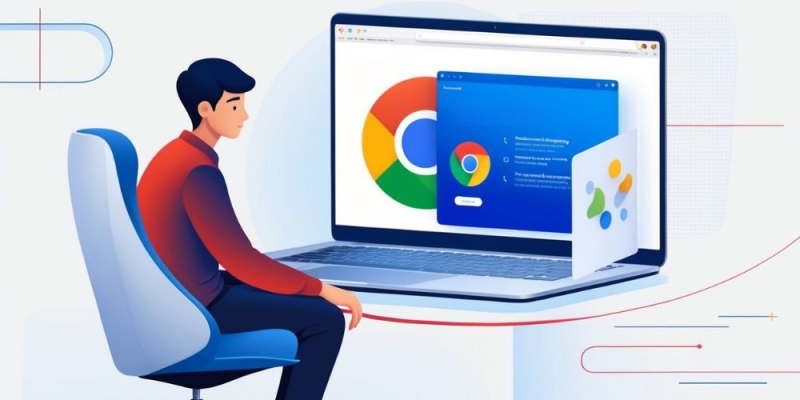
Google Chrome is enhancing its functionality with the introduction of three innovative features powered by artificial intelligence. Aiming to simplify tab management, these new tools were announced by the tech giant based in Mountain View on Tuesday. Among the updates, one feature is specifically for iOS, complemented by two additional cross-platform enhancements. These updates come shortly after the launch of a text-to-speech capability, making it more convenient for users to listen to articles and web content.
The latest enhancements to Google Chrome are focused on improving the challenges that arise when managing multiple tabs effectively. According to a blog post from Google, the company is addressing common frustrations linked to this. Over the past year, Google has made significant strides, including features like tab grouping and similar tabs, to alleviate these issues. Now, by integrating AI, they are rolling out three additional features aimed at providing a smoother user experience.
The first feature is exclusive to Google Chrome for iOS. Previously, tab groups were introduced for Android and desktop users, enabling related tabs to be grouped together for easier access. The iOS version will also allow users to customize tab groups by selecting a unique color and naming them for better identification. Users can rearrange the grouped tabs according to their preferences after they have been organized.
In a forthcoming enhancement, users will have the opportunity to save and synchronize their tab groups across devices. With this functionality, tab groups will be accessible on both desktop and mobile devices, allowing for continuous projects without the need to retain specific URLs in memory. This feature is currently under development but promises to enhance user experience significantly.
For instance, if a user is researching restaurants on their mobile device but wants to view more detailed content on a larger screen, they can seamlessly switch to a desktop. The tab groups will be automatically synced, ensuring that they can continue their research without losing track of any valuable information, provided both devices are logged into the same Google account.
The third feature is experimental and employs AI to recommend web pages that users may wish to revisit. This functionality will suggest pages based on previously opened tabs across various devices. The intention behind this feature is to eliminate the need for bookmarking or trying to recall URLs manually.
Nevertheless, it remains unclear how the AI will determine which pages to prioritize and whether there is a way for users to influence the likelihood of certain pages being recommended.
